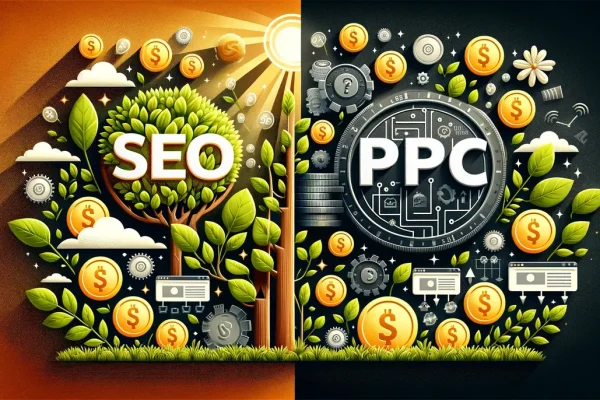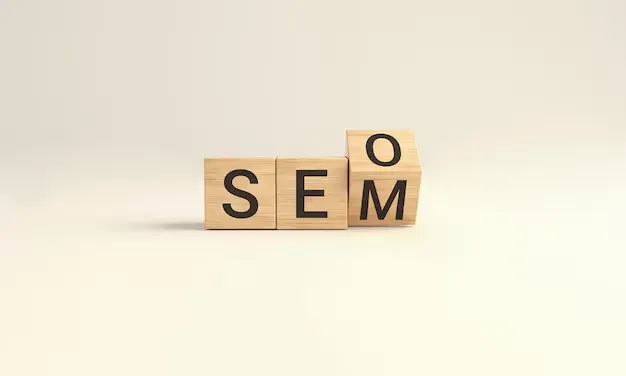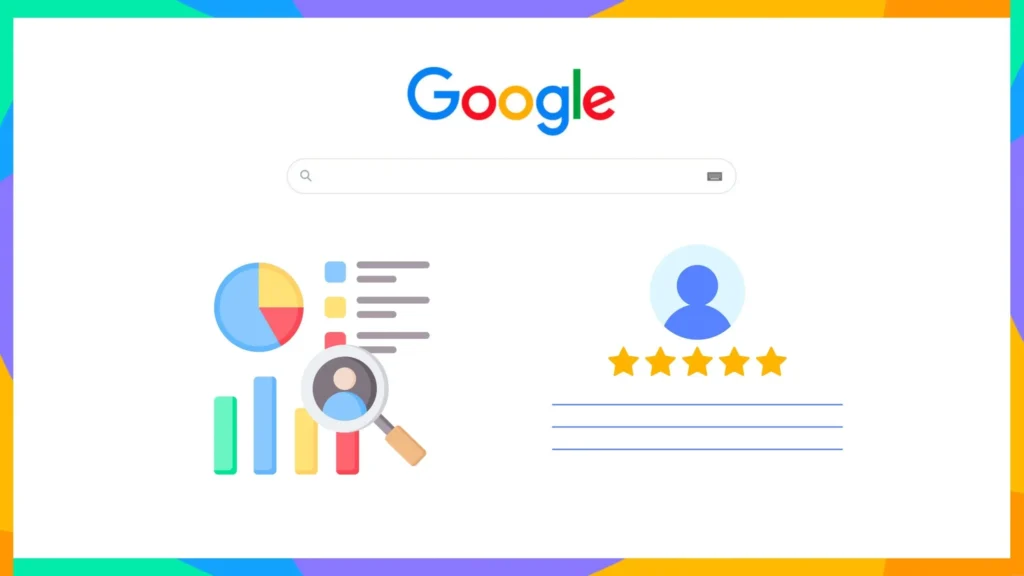Have you ever wondered why some websites always seem to be at the top of your search results, while others, no matter how relevant, linger on subsequent pages? This question taps into the core of an ongoing battle in the digital marketing world: PPC vs. Organic Search.
From understanding the immediacy and precision of Pay-Per-Click (PPC) campaigns to the enduring value and credibility of organic search results, this article promises to unravel the intricacies of each approach. By continuing with us, you’re on the path to uncovering the benefits of paid advertising, equipped with the knowledge to decide which strategy will best serve your online objectives.
Stay tuned as we explore key topics, including the impact of PPC on short-term goals, the long-term advantages of organic search, and how blending the two can create a comprehensive digital marketing strategy.
What Is PPC?
Pay-Per-Click advertising is a digital marketing model where advertisers pay a fee each time one of their ads is clicked. Essentially, it’s a way of buying visits to your site, as opposed to earning those visits organically.
PPC ads can appear in search engine results pages (SERPs), on social media platforms, and on various websites participating in ad networks. The immediate visibility and targeted reach offered by PPC make it a powerful tool for generating leads and sales swiftly.
What Is Organic Search?
Organic search, on the other hand, involves optimizing your website and content to rank higher in SERPs naturally, without paying for placement.
This process, known as Search Engine Optimization (SEO), includes keyword research, content creation, and website optimization strategies aimed at improving your site’s relevance and authority.
The primary goal is to attract and engage a target audience by providing valuable content and a seamless user experience.
What Is the Difference Between PPC and Organic Traffic?
The primary distinction between Pay-Per-Click (PPC) and organic traffic hinges on the methods used to acquire traffic, the associated costs, and the immediacy and durability of the results.
PPC traffic is derived from paid advertisements. Advertisers incur a fee each time their advertisement is clicked. These advertisements can appear on search engines (like Google Ads), social media platforms, and other websites.
In contrast, organic traffic is obtained through securing a high position on search engine results pages (SERPs) via SEO (Search Engine Optimization) strategies. This involves the use of pertinent keywords, the creation of quality content, the optimization of website speed, and other techniques aimed at improving visibility and ranking.
A direct cost is associated with each click received through PPC campaigns. The costs can fluctuate widely based on the competitive nature of the keywords, the quality of the ad, and the platform used for advertising.
Conversely, organic traffic is generally considered “free” in the sense that there is no cost for each visitor that comes to your site through search engine results. However, achieving a high ranking typically requires significant investment in SEO strategies, which may include content creation, website optimization, and link building.
PPC offers immediate visibility and can generate traffic as soon as the campaign starts. It’s particularly useful for promoting specific products, services, or events and can be adjusted or paused at any time based on performance or budget considerations.
On the other hand, organic traffic growth is more gradual. It takes time to build up a strong SEO foundation and achieve high rankings, but the results can be more sustainable in the long term. Organic visibility tends to build trust with users and can lead to a steady flow of traffic over time.
What Is the Difference Between PPC and Organic Clicks?
The difference between Pay-Per-Click (PPC) clicks and organic clicks primarily revolves around their source, cost, and the strategies used to obtain them.
Source:
- PPC Clicks: These are generated through paid advertising campaigns where advertisers bid on keywords and pay for each click on their ads. These ads appear on search engine results pages (above or below the organic search results), on social media platforms, and on various websites as part of display networks.
- Organic Clicks: These come from users clicking on non-paid search engine results. These results are ranked by search engines based on their relevance to the search query, among other factors determined by the search engine’s algorithm.
Cost:
- PPC Clicks: There is a direct cost for every click on a PPC ad. This cost varies depending on the competitiveness of the keywords, the quality score of the ad and landing page, and the bidding strategy of the advertiser.
- Organic Clicks: There is no direct cost per click. However, achieving a high ranking in organic search results typically requires investment in SEO strategies, including content creation, site optimization, and link building.
Strategies Used:
- PPC: The focus is on optimizing ad campaigns, selecting the right keywords, crafting compelling ad copy, and setting an effective bid strategy. The goal is to maximize the return on investment (ROI) by targeting specific demographics, interests, or search behaviors.
- Organic: The strategy revolves around improving a website’s SEO. This involves creating high-quality, relevant content, ensuring the website is user-friendly and mobile-responsive, building backlinks, and optimizing for keywords and technical SEO elements to improve visibility and rankings in organic search results.
Is Organic Search or Paid Search Better?
Neither strategy is inherently better than the other; each has its unique advantages and can be more suitable for different marketing objectives.
Paid search provides immediate results and is highly scalable, making it ideal for short-term campaigns or specific promotions.
Organic search delivers long-term value, establishing credibility and trust with your audience. The best approach often involves leveraging both strategies to create a comprehensive digital marketing effort.
Advantages of PPC Advertising
One of the most significant advantages of PPC advertising is the immediacy of results.
Once your PPC campaign is live, your ads start appearing in SERPs, driving targeted traffic to your website. This instant visibility is especially beneficial for new websites or those looking to promote time-sensitive offers.
Measurable ROI
PPC campaigns offer the benefit of clear, measurable returns on investment (ROI). With robust analytics tools, advertisers can track everything from the number of clicks and impressions to conversions and sales, allowing for data-driven decisions to optimize campaign performance.
The Value of Organic Search
Organic search excels in providing long-term visibility. A well-optimized site can maintain high rankings in search results, attracting consistent traffic over time.
This sustained visibility builds brand awareness and authority, contributing to a stronger online presence.
Cost-Effectiveness
While organic search requires upfront investment in content creation and SEO, it is highly cost-effective in the long run.
Unlike PPC, where costs are incurred for each click, organic traffic does not have a direct cost per visit, making it a financially sustainable strategy for continuous growth.
Building Trust and Credibility
Organic search rankings are often perceived as more credible and trustworthy by users since they are earned through relevance and quality rather than paid placements. This trust can translate into higher engagement rates and loyalty from your audience.
Leveraging Both Strategies for Maximum Impact
Combining PPC with organic search strategies can provide comprehensive coverage in SERPs, maximizing visibility and capturing a wider audience.
This integrated approach allows businesses to capitalize on the immediacy of PPC while building a solid organic foundation for sustained growth.
Analyzing PPC campaign data can also offer valuable insights to refine SEO strategies, creating a synergistic effect that enhances overall marketing performance.
Implementing a Successful PPC Strategy
A successful PPC campaign begins with clear business goals. Whether it’s increasing sales, generating leads, or boosting brand awareness, defining your objectives guides the development of your campaign strategy, ensuring alignment with your broader marketing goals.
Keyword Research and Selection
Effective keyword research is the cornerstone of PPC success.
Identifying the right keywords—those with high relevance, significant search volume, and manageable competition—enables you to create targeted ads that reach your desired audience.
Creating Compelling Ad Copy and Landing Pages
Compelling ad copy and well-designed landing pages are critical to converting visitors into customers.
Ads should clearly communicate the value proposition and include a strong call to action, while landing pages must align with the ad’s message, offering a seamless user experience that encourages conversion.
Making the Right Choice for Your Business
Using both PPC and organic SEO strategies is beneficial because it offers both immediate and long-term results. PPC campaigns can quickly increase visibility and traffic, providing immediate feedback and the ability to adjust strategies swiftly.
Organic SEO, on the other hand, builds a strong foundation for your web presence, improving your site’s ranking over time and establishing credibility with your audience. Combining these approaches ensures comprehensive coverage across different phases of the customer journey, maximizing reach and conversion opportunities.
Ready to elevate your online presence? Discover how Index365‘s expert PPC and organic SEO strategies can drive your business forward. Harness the power of integrated digital marketing solutions for immediate impact and sustainable growth. Contact us to start transforming your digital strategy today.

